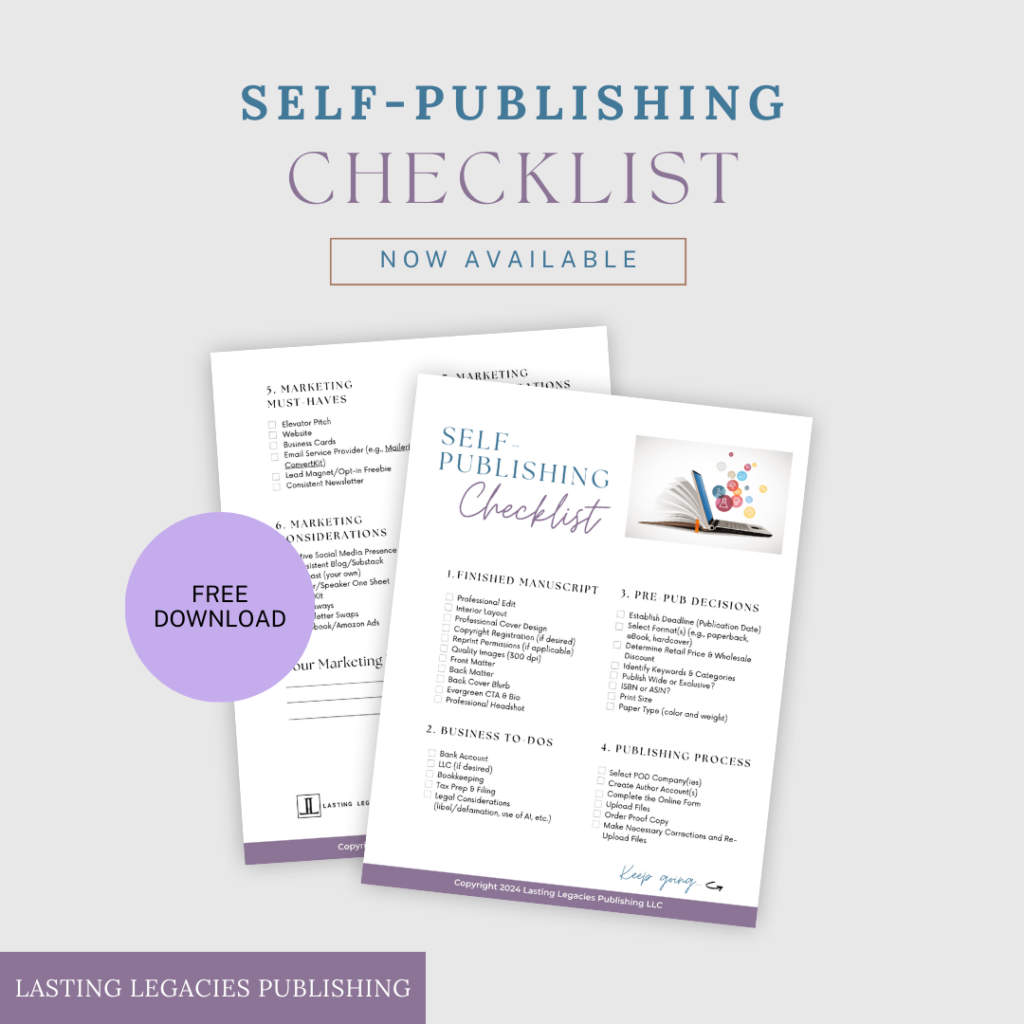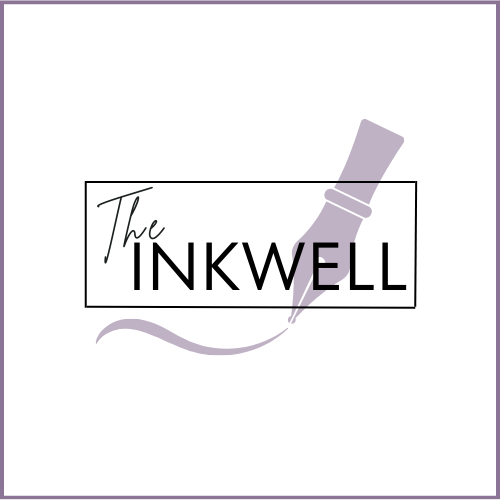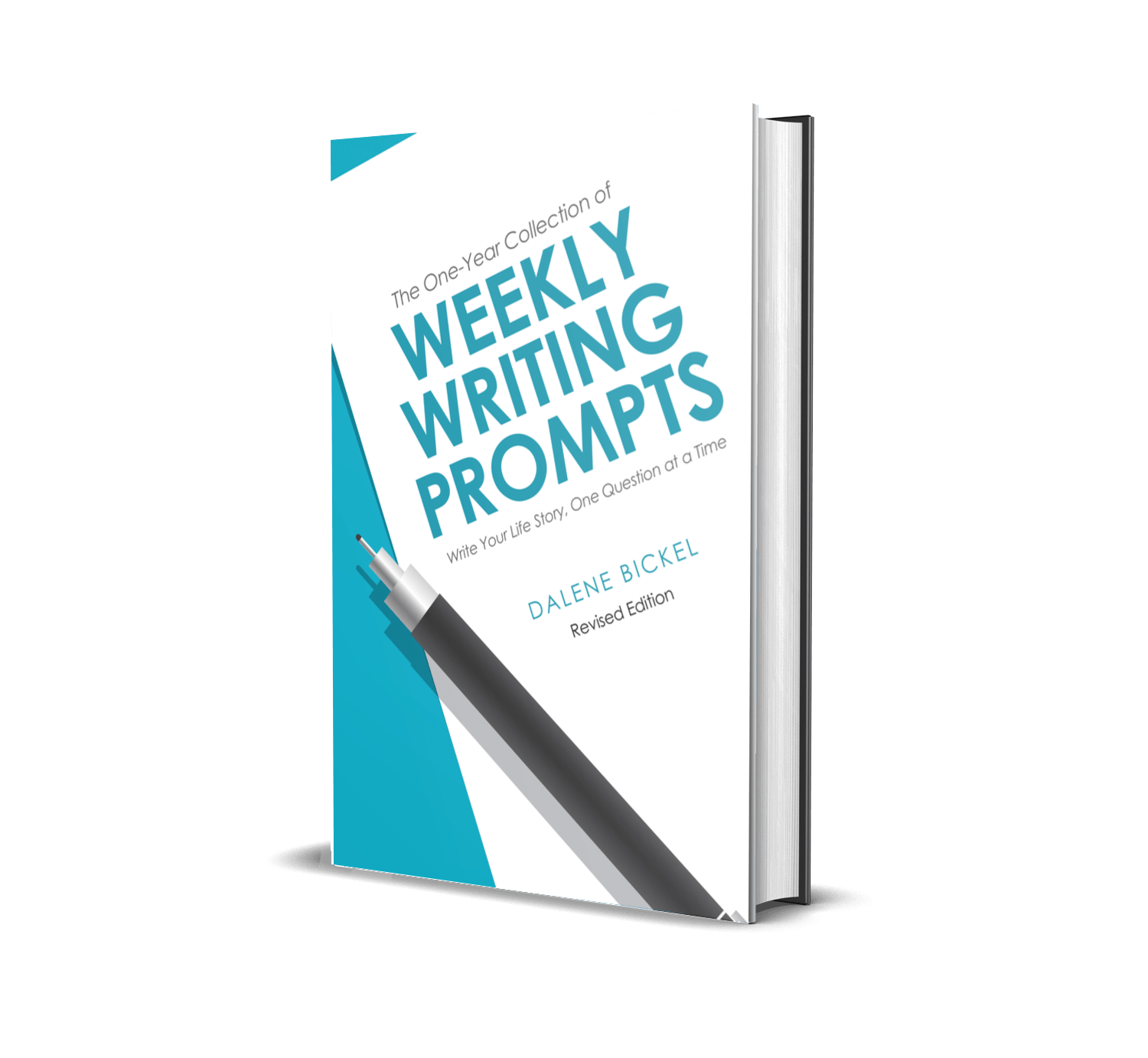Did you know that today, September 15, is National Get Ready Day?
Yeah, who knew? I didn’t until yesterday, when I was doing a little bit of research.
I also don’t know who comes up with these day designations. But I decided to run with it for this episode because, well, it ties in rather nicely with authorship.
Many aspiring authors decide to write a book and immediately dive into the deep end, without testing the waters first. And while that’s laudable on one hand – I mean, after all, you do have to put in the work and actually write – but it’s also foolhardy on the other.
Without proper preparation, you can unintentionally
- forego quality,
- lose money, and
- invite negative criticisms.
If you’re a writer aspiring to become an author, it’s wise to consider a few important points before you make impromptu decisions that might negatively affect your author experience.
And if you’re a Christian aspiring author, it’s critical that you take the time to adequately prepare for the journey so you’re not running ahead of God or throwing in the towel at the first challenging experience.
Now, what kind of preparations am I talking about?
Three of them, actually:
- Get ready to write.
- Get ready to market.
- Get ready to withstand.
Let’s break each of these down.
GET READY TO WRITE
#1 Story Idea
Before you actually write your book, you need a story idea. I think everybody assumes this is a given. But let’s just talk about this for a minute.
You need an outline, a basic plot idea, some semblance of the transformation or journey you’re going to take the reader on. This will keep you focused on what needs to be said, rather than just going off in a million tangents and never finishing your book. I’ve seen that happen before.
You need to have a clear vision of what you want your book to be about, and what you want it to accomplish. Understand that before you start diving into marketing, which, by the way, you need to start doing as soon as you begin writing your book. Yes, that early.
#2 Goal
What specifically do you want to do for your readers? Is this book part of your overall income strategy? If so, how will you price your book? And how many books will you need to sell to meet your financial obligations? Do you dream of collaborating with certain people through your book? Are you using your book to launch a speaking career or a nonprofit ministry? Be upfront and honest with yourself? Why are you writing your book? And what do you feel God is wanting you to do with it?
Write those things down so that you can keep them front and foremost in your mind as you begin to write.
#3 Schedule
Before you actually start writing those chapters, it’s helpful to have a schedule in place.
If you’re self-publishing, you get to set your publication date, so I’m going to address this in this episode. I’m speaking to self-published authors right now.
While many people claim to whip out books in 30 days or less, I discourage you from doing that. Yes, you can write a rough draft in 30 days, but I personally questioned the print quality of books that are written and published in fewer than 30 days because it typically doesn’t allow time for
- editing,
- graphic design and layout,
- revisions,
- BETA readers to review the content,
- more corrections and revisions,
- reprint permissions.
If you’re going to include certain photographs or song lyrics, or quoting lengthy paragraphs from someone else’s work, you need those reprint permissions and this can take time.
What I recommend, for first-time authors especially, is to at least allow six months, but preferably up to a year.
Write that deadline – that publication date – on your calendar. Then start backing up to know how quickly or how much you need to write in order to reach that goal.
So, like I said about the print quality – how you want to have time for the editor and the designer and all that – let’s factor that into this equation, too. You have your publication date on your calendar, then go back two weeks for printing (if you’re going to have print books; if you’re doing an e-book, you don’t have to worry about that).
Then back up another three to four weeks for the designer to do his or her magic on your book – laying it out and designing the cover and all that.
Now, back up yet another two to three weeks for editing, depending on how long your book is or how busy the editor is – when they can fit you in.
Where are you standing at right now on that calendar? That right there is when you need to have your rough draft finished by.
Now you’re going to work out a weekly schedule based on that. How many weeks do you have until your rough draft deadline? How many chapters do you have? So how many chapters do you have to write a week? Or how many chapters do you have to write a month?
Then you can back up even further and ask yourself: how many days a week do I need to write or how many hours a week do I need to write in order to ultimately reach those goals?
This becomes your writing schedule.
It’s very helpful for you to have this in hand before you just dive in to your book.
GET READY TO MARKET
In addition to the basic foundational tools that I mentioned in last week’s episode (Ep.15 – 10 Important Tech Tools for Authors) where I discussed what you needed as far as systems and tech for getting your website established, setting up your newsletter, that kind of thing, this week I’m talking about something a little different.
Determine the following components at the outset of your author journey. There are again, three.
#4 Connect
Everyone shouts that from the rafters that you need to know who you’re writing to and who you’re writing for – know your ideal audience. Yes, you need that. But what you also need to consider at this beginning stage is how are you going to connect with those people?
Begin to keep track of where those ideal readers hang out. Are they on social media sites? Maybe they’re more in person. For example, if you’re writing a business book, I know a lot of authors sell at business events, networking events, conferences. They make their income from book sales to their audience in person.
Where does your audience go? Maybe it’s book fairs or festivals, or maybe they just like to hang out at libraries. If so, you want to make sure you get your book into libraries, especially if you are writing cozy mysteries or some type of romance or things like that, where there are a lot of book clubs. You definitely want to be in the libraries because I know all of my local libraries have shelves full of book club selections.
Do your people like to buy online or at local bookstores? Maybe you want to be on both of those depending on where your ideal audience hangs out.
What complementary businesses or organizations host events that attract your readers? Go to them and discover if you can collaborate with them in some way.
Make it easy for your readers to find you by going where they like to hang out. If you aren’t sure where they are, this is the perfect time to start doing that research.
#5 Budget
A lot of people don’t like to talk about this. Money is a sensitive topic, but we need to be honest as we evaluate our current finances and consider income that we expect to make later in the year.
I never ever recommend that anyone go into debt – and yes, I’m talking about credit card debt, too. Don’t put all kinds of stuff on the credit card if you can’t pay it off at the end of the month, especially for funding your marketing efforts. This is particularly true if you intend to buy ads, which can add up quickly.
I wouldn’t say I’m not a huge proponent of ads; I just don’t have much experience with ads personally, myself, so I can’t really speak to that. But I have heard that many people have spent a lot of money – a lot of unexpected, unplanned money with an ad. So, you need to be careful with that and you need to stick to a budget if you’re going to do ads.
I encourage you to start small with your marketing and work your way up.
Keep a list of all necessary expenses and all desired expenses, making sure you take care of the necessary ones before you start taking care of the want list.
#6 Marketing Plan
Start working on your marketing plan on day one that you decide that you want to write a book.
While ads are probably the most recognizable way to market (and also the most expensive), there are many other ways to advertise.
Conferences and festivals are always looking for sponsors or people to put ads in their brochures and programs. Create business cards. Look for places that don’t cost a lot of money, such as podcast interviews. Pitching podcasts and being interviewed as a guest is a great way to market your book and reach new readers.
Pitch bloggers in your niche, ones you know your target audience likes to go and hang out. Ask if you can write a guest blog for them that’s (ideally) centered on the topic of your book or your experience. That way, at the end and your byline when you mention that you’re the author of XYZ book, the people who just read this blog post about this similar topic will be like, yes, I want to read her book!
Of course, you can also do some traditional marketing by submitting press releases to radio stations and television stations. But that requires research as well; you have to research who the appropriate person is. Start creating spreadsheets of all these people that you want to reach out to. This is legwork that you can do at the very beginning, when you’re just starting writing, so that at the end of the book when you’re about to publish, you’re not scrambling trying to find contacts and ready to pull your hair out because there’s so much going on at that time.
Do yourself a favor: Start doing the research and creating spreadsheets of contacts as soon as possible.
WITHSTAND
What do I mean by “withstand”? Sounds kind of ominous. I don’t intend it to be ominous, but it is serious and it’s something that we do need to consider.
Although we’re ultimately bringing messages of redemption and grace and mercy, hope and love and encouragement to our readers, we’re also called to share important yet sometimes difficult biblical truths. And even when bathed in prayer and shared in love, those truths are increasingly being resented, rejected, and sometimes angrily refuted by some readers.
We therefore need to prepare ourselves in advance for inevitable moments of confrontation and accusations.
These might come from family members, nameless Amazon reviewers, social media followers, or trolls, or any number of both expected and surprising sources.
Rather than being blindsided and caught off guard – and when we’re caught off guard, we tend to lash out and say the first thing off the top of our head rather than just sitting back; a lot of times, it’s just worth it to not say anything at all – let’s begin to prepare for the inevitable. Hopefully, it won’t happen often. But it probably will happen at least once
So how can you prepare your heart and mind for this? It can be best summarized with these two words, ARMOR UP (Ephesians 6:10-18). But to maintain consistency with the other categories, I’ll break it into three different action steps.
#7 Invite God into each of our writing sessions and each of our marketing efforts
He’s the one who has given us the story. Who better to help us write it? He is sovereign God and He is able to open those doors for our books that we wouldn’t be able to do on our own.
#8 Pray Regularly
As we lay our requests at the feet of the Father and intercede on behalf of others, we are rightly prioritizing our time and giving God glory.
#9 Gather and memorize Scripture
The Bible is God’s word, and it can be trusted. So I wanted to share some scriptures (from the NIV edition) to get you started, to give you an idea of how you can start preparing your heart for this.
When we’re afraid
- 2 Timothy 1:7 – For God has not given us a spirit of fear, but of power, and of love, and of a sound mind.
- Hebrews 13:6 – So we may boldly say, “The Lord is my helper; I will not fear. What can man do to me?”
- Proverbs 29:25 – The fear of man brings a snare, but whoever trusts in the LORD shall be safe.
When we’re angry
- Romans 12:21 – Do not be overcome with evil, but overcome evil with good.
- Matthew 6:14 – For if you forgive men their trespasses, your heavenly Father will also forgive you.
When we’re discouraged
- Philippians 1:6 – Being confident of this very thing, that he who has begun a good work in you will complete it until the day of Jesus Christ.
- Psalm 37:5 – Commit your way to the Lord, trust also in Him, and He shall bring it to pass.
- 1 Peter 4:12-13 – Beloved, do not think it’s strange concerning the fiery trial, which is to try you as though some strange thing happened to you; but rejoice to the extent that you partake of Christ’s sufferings, that when His glory is revealed, you may also be glad with exceeding joy.
I want to conclude this segment of today’s episode by reading 1 Peter 3:14-18.
“But even if you should suffer for what is right, you are blessed. Do not fear their threats. Do not be frightened, but in your hearts, revere Christ as Lord. Always be prepared to give an answer to everyone who asks you to give the reason for the hope that you have. But do this with gentleness and respect, keeping a clear conscience so that those who speak maliciously against your good behavior in Christ may be ashamed of their slander, for it is better if it is God’s will, to suffer for doing good than for doing evil. For Christ also suffered once for sins, the righteous for the unrighteous to bring you to God.”
Listener Opportunities
Have you written a Christian book (fiction or nonfiction)?
It doesn’t have to have been published just within this year. If you have written a Christian book, I would love to learn about it.
Send me an email to info@inkandimpact.com that includes:
- your name,
- the title of the book,
- a brief summary (like the back cover copy), and
- a link to where I can see the cover and read a few sample pages.
Please don’t send any attachments.
But I do want to learn about your book and I would love to be able to share it with others I know. Especially with indie published authors, it’s hard to get your book seen a lot of times and I would love to help get you a little bit of traction here through the podcast.
Looking to join a weekly writing group specifically for Christian writers?
I am so excited about The Inkwell that I’ve been hosting for about two years now, where we meet every Wednesday at 10am EST to write and connect with each other and pray with each other.
It’s just really blossoming into this beautiful weekly writing session that I know I get so much out of, and I hear from so many of the other participants that they are really thriving with it as well.
And yet, I also hear from several West Coast people that they would love to join, but it’s just too early in the morning. 10am EST is, I believe, 7am their time and I know that’s really hard, especially if you have littles and you’re trying to get them out the door to school or if you have another job and you’re trying to get off to work. I understand that.
So, I’m thinking of adding another time slot!
I would still keep the 10 o’clock – that’s not changing. I would just add a 2 o’clock EST time slot on Wednesdays. I would love to get feedback from those of you listening in the Pacific Standard Time, or even mountain time – oh, wherever you’re at, lol.
Let me know if you would be interested in a 2pm EST time writing session at The Inkwell, and please do send me an email at info@inkandimpact.com or, if you’re on Instagram like I am (that is my favorite social platform of choice these days), send me a DM. Connect with me and send me a DM and let me know what your thoughts are about The Inkwell.
***********************************************************
That’s it for today fellow pen pusher.
Remember, don’t just write a book. Make an impact.







